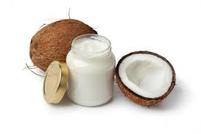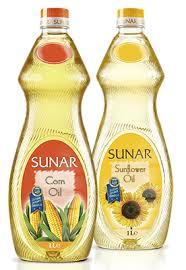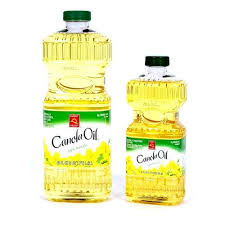|
There is a lot of misinformation and confusion surrounding the topic of the best oils to use for cooking. Mainstream media continues to promote polyunsaturated oils as healthy and continues to demonize coconut oil. But they have it wrong and here is why… So what are the best oils for cooking? When you are cooking at high temperatures, you want to use oils that are stable and do not oxidize or go rancid easily. When oils undergo oxidation, they react with oxygen and can form free radicals. There are four types of fatty acids: saturated (SFA), monounsaturated (MUFA), polyunsaturated (PUFA), which includes omega-3 and omega-6 fatty acids, and lastly, trans fatty acids (TFA).
Trans fats are the very worst fats for our cells because these toxic fats can lead to the formation of free radicals. Free radicals can cause damage to any part of the body. Trans fats are stiff and hard and literally embed themselves into our cell membranes, causing them to malfunction and create disease. Trans fats are man-made and found in processed foods, shortenings, margarines, fried foods and commercially produced baked goods. Nature does not produce bad fats – factories do! They are not safe to eat and were declared as such in 2013 by the FDA. However, buyer beware: a product that is labeled “no trans fats” can still contain up to 0.5 grams of trans fats per serving. These fats do not belong in your diet! Dr. Mary Enig, a nutritional biochemist, has been warning us of these toxic fats since the 70s. If you are interested in an exposé of the false demonization of natural fats and the misinformation of low-cholesterol diets rich in crop oils, check out Dr. Enig’s work called The Oiling of America. It is a 2-hour lecture presented by Sally Fallon, founding president of the Weston A. Price Foundation. It is extremely interesting and traces the intertwining of certain influential scientists with the crop oil industry. Take away – stick with saturated fats and monounsaturated fats, not polyunsaturated for cooking and baking. And to ensure that your oils do not go rancid: 1. Don’t buy in large quantities. Buy smaller bottles (preferably dark-colored glass with a tight-fitting cap) that you will use before they can get damaged. Heat, light, and oxygen can damage oils. 2. Keep oils in a cool, dry, dark place. Sources:
Fallon, S. (2001). Nourishing traditions. Washington, DC: New Trends Publishing. Hyman, M. (2016). Eat fat, get thin. New York, NY: Little, Brown, & Company. Shanahan, C. & L. (2009). Deep nutrition. Lawai, HI: Big Box Books.
2 Comments
Cheryl
10/21/2016 06:03:20 am
Thank you Kristin! As you know, I eat sweets on a daily basis and most of them store bought. I haven't developed the willpower to stay sober from my sugar addiction, but now I do make sure the pastries I eat do not contain margarine or polyunsaturated fats. Baby steps ;)
Reply
Jen Yasis
10/24/2016 10:00:32 am
Kristin, Thank you for this great summary and resources! I'll watch the Oiling of America right away!
Reply
Leave a Reply. |
The information on this website is not intended to diagnose, treat, prevent, or cure any disease.
All of the information on this website is Copyright © CookingwithKristin.com 2017 and may not be downloaded, reproduced, republished or otherwise copied without express written permission of CookingwithKristin.com.
All of the information on this website is Copyright © CookingwithKristin.com 2017 and may not be downloaded, reproduced, republished or otherwise copied without express written permission of CookingwithKristin.com.



